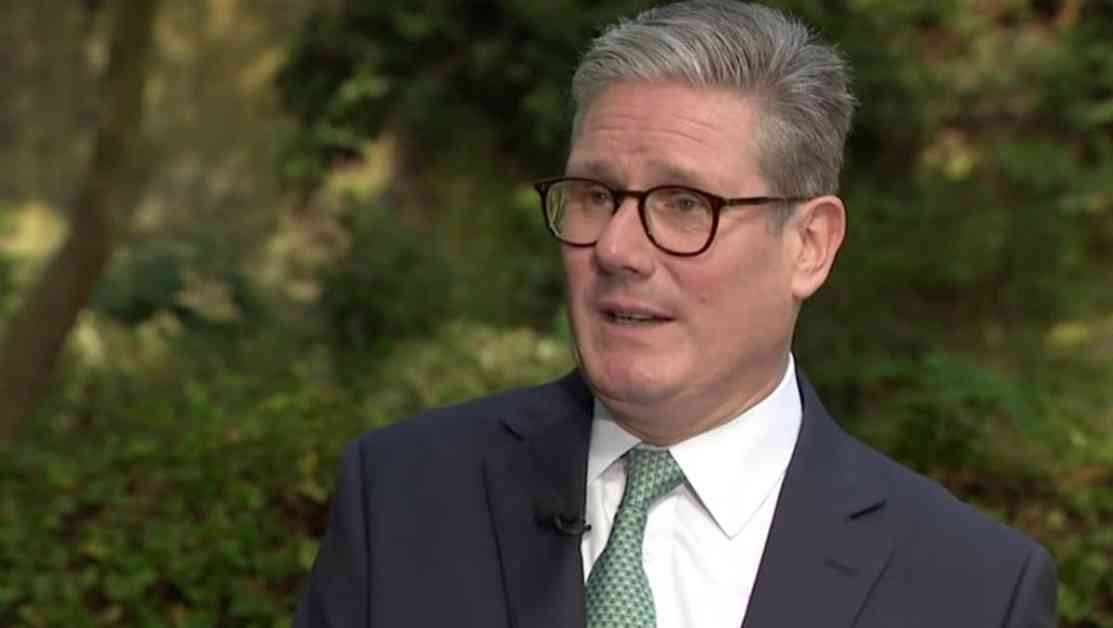Keir Starmer Announces Changes in Donation Policy
In a recent turn of events, Keir Starmer, the leader of the Labour Party, has declared that he will no longer be accepting clothing donations from donors. This decision comes after days of negative publicity surrounding the so-called ‘wardrobegate’ scandal. Alongside Starmer, other prominent figures in the party, such as Angela Rayner and Rachel Reeves, have also vowed to refrain from accepting free clothes in an effort to quell the controversy. This sudden shift in policy comes just as Labour’s annual conference is set to commence this weekend.
Despite this new stance on clothing donations, Labour’s top brass will still be able to receive other forms of gifts and hospitality, raising questions about the party’s ethical standards. The controversy first erupted when it was revealed that the prime minister, Boris Johnson, had failed to disclose clothing purchased for his wife, Victoria, by Lord Alli, a major Labour donor with a history of contributing over £500,000 to the party over the past two decades. As public scrutiny intensified, Lady Starmer made a surprising appearance at London Fashion Week, clad in borrowed attire.
Keir Starmer himself has come under fire for accepting more than £100,000 in gifts, including clothing and accommodation, from Lord Alli. The situation was humorously dubbed “passes for glasses” after it was disclosed that Starmer had received multiple pairs of spectacles from the generous donor. The controversy extended to other members of the Labour cabinet, with Angela Rayner staying at a New York flat owned by Lord Alli and Wes Streeting confessing to receiving complimentary tickets to a Taylor Swift concert.
Mixed Reactions within the Labour Party
The recent policy shift regarding donations has sparked a range of reactions within the Labour Party. While some senior figures initially defended the acceptance of gifts, others have criticized the practice as undermining the party’s integrity. Emily Thornberry, for instance, questioned whether it was reasonable to expect the prime minister to bring a packed lunch to a state dinner at Buckingham Palace. Foreign Secretary David Lammy defended the donations, suggesting that they were necessary for Starmer and his wife to present themselves in a favorable light.
However, not all members of the party have been supportive of the decision to accept lavish gifts. Dame Angela Eagle struggled to defend Starmer’s actions, emphasizing that she was not responsible for his choices. Former Labour minister Baroness Harman publicly admonished Starmer for accepting substantial gifts and hospitality over the years, warning that his attempts to justify the donations only exacerbated the situation. The controversy has underscored divisions within the party over ethical standards and transparency.
Scrutiny Over Freebies and Political Accountability
The ‘wardrobegate’ scandal has reignited debates about political accountability and the influence of donors on elected officials. Critics argue that accepting expensive gifts compromises the independence and integrity of political leaders, raising concerns about potential conflicts of interest. The revelation that Starmer and other Labour figures have received significant perks from wealthy donors has fueled calls for greater transparency and scrutiny of politicians’ financial dealings.
In response to mounting criticism, Starmer has defended his acceptance of freebies, such as tickets to Arsenal football matches, by citing security concerns and the need to avoid additional costs to taxpayers. However, some have questioned the justification for these gifts and whether they align with the principles of public service. The controversy surrounding clothing donations and other perks has highlighted the challenges of balancing personal relationships with political responsibilities.
As the Labour Party grapples with the fallout from ‘wardrobegate’, the public’s expectations of accountability and ethical conduct in politics have come to the forefront. The controversy serves as a reminder of the importance of upholding integrity and transparency in public office, and the need for elected officials to prioritize the interests of the electorate above personal gain. Only time will tell how Starmer’s decision to halt clothing donations will impact the party’s reputation and its commitment to ethical governance.












